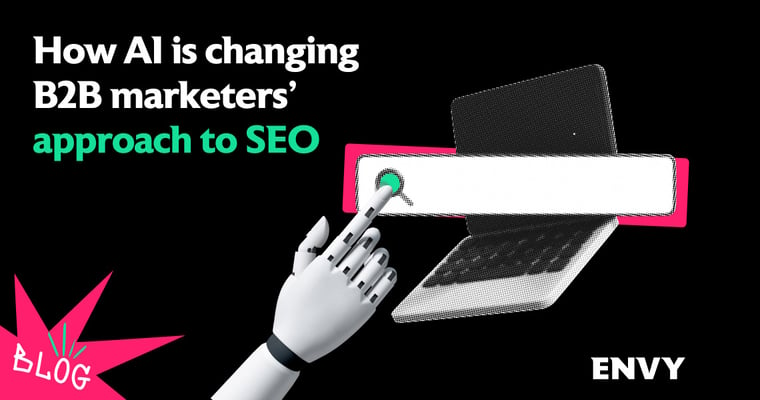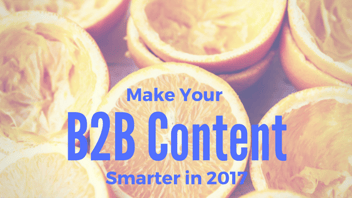
Does Google Penalize AI-Generated Content?
The answer is ‘yes and no’. Just last year, Google quietly removed a very important mention from its guidelines: where they used to say search engines will promote "helpful content written by people, for people", they now only say "helpful content created for people". That does change things, doesn’t it? It looks like Google recognizes that AI is here to stay, and people, including marketers, will continue using it–which means we're safe to assume that AI can help us bring value to where once was only fluff. And speaking of fluff....
A recent survey from Neil Patel shows that out of over a thousand marketers, more than 60% of them publish AI-generated content without even reviewing it. But Google's perspective is clear: quality content always wins. If your narrative adds genuine value to the reader by being informative, engaging, or insightful, its origin—whether you wrote it yourself or a string of AI code helped you just a bit—becomes secondary. But, and it is a big but, the most recent change clearly states that Google is working on reducing the amount of "low-quality", spammy content by 40%. What does it mean? Don't use AI to write content just for the sake of writing content. Meaningless ToF content written just to rank higher on certain keywords goes out of the window immediately–or else it will get you penalized.
Google SERP is changing
Google SERP has been changing (growing, mainly) throughout the years, but there are two main recent changes related to AI introduced in 2023/2024:
Introducing Search Generative Experience (SGE)
Although currently only available in the US and in English, we might expect SGE to mess with organic search ranking. The idea is to use AI to bring up various content types and mix them to provide the best response to user queries. Links to pages the content was taken from will appear on the right (which could potentially boost traffic–assuming users will need the extra click), and ads are expected to still appear on top, above Generative AI's answer, but the extent of the impact this will have is still a question.
Source: searchengineland.com
Zero Click Searches
Another way AI will impact your organic search ranking basically aims for the user to receive an answer to their query without having to click through any links at all. Fear not, because this isn't anything new–already back in 2022, a study by Semrush showed that over 25% searches on desktop and slightly less than 20% on mobile ended as zero click searches.
And while this might lead to a possible decline in overall traffic (although the traffic that does remain will surely have higher intent), there is an already known solution–snippets! Featured snippets will help you appear higher (this won't impact your search ranking, sadly), so whenever you work on a content piece, have these snippets in mind to try to make sure that your content can actually rank in the search results page as a featured snippet. One example we can give you? Ask your sales team about the ten most frequently asked questions they get whenever speaking with prospects, and turn those questions to content pieces.
Another thing is focusing more on MoF and BoF content. We're yet to say top of the funnel content is definitely dead, but with everything we've said above in mind–providing value and creating high quality content will help you rank higher. Think about that when building your content strategy, defining your content clusters and keywords (and keyword intent) you want to work on.
How AI Helps in SEO Content Production
There are three main areas where we find AI most useful when it comes to SEO, and these are:
- Keyword research: Don't get us wrong, SEO tools like SEMrush are currently irreplaceable, but AI might serve as an additional help when researching for new keywords. With the right prompt–that mentions your product/service, preferably company name and target audience–you can get really insightful terms you might have previously overlooked. But don’t rely solely on ChatGPT for this and do make sure to run these keywords through SEMrush (or any other tool you use) to check for relevance, volume and difficulty.
- Content strategy: GPT-4 and the likes are great at digging through vast amounts of data to identify trends, understand audience behavior, and pinpoint what your target market is genuinely interested in. This works great when it comes to auditing your content strategy–both in terms of reviewing and optimizing existing contents for SEO purposes, and identifying gaps in the current plan which you can later fill and make sure you're catering for all the stages of the funnel. Use ChatGPT to identify topics within your industry that are gaining traction, MarketMuse to scan your site to find topics you’ve missed and Jasper to quickly create blog outlines around those topics.
- Content creation: Now, you've probably used AI to help you draft a blog post outline or make your LinkedIn post funnier, but it also works great for things like writing meta descriptions. Just imagine you're reviewing your SEO performance and there are hundreds of existing pages missing meta descriptions–we used to write them all manually, but nowadays the right prompt will get the task done in a few hours. The right prompt might be the clue here, because depending on what you feed the AI tool with, you might get different answers. Have a look below and see how ChatGPT responds:
The prompt above is too basic and doesn’t give any specific instructions–which is why the response given doesn’t make much sense either. The meta description’s way too long and buzzwordy. Let’s try again.
This is starting to look better, isn’t it? The meta description is within the character limit and uses relevant keywords. But… and that’s a BIG “but” with AI tools, things like “master the art of…” isn’t something we’d say at Envy, and the blog post we used in the prompt isn’t an “expert guide”. There’ll always be something you’ll need to edit–which we honestly believe will still be quicker than writing everything from scratch 😉
AI is here to help B2B marketers with SEO, not to replace you
AI and marketers don't have to compete. They can complete instead (you know we just had to!!) Use AI to take the mundane off your hands, and focus on the strategic and creative tasks that AI is not capable of handling (yet).
In order to stand out, you need to share what isn’t already obvious to your audience–that’s where your thought leadership and years of experience come in. AI won’t beat that, but it’ll work great in gathering and organizing your thoughts. And don't forget there are things AI can't write that make your content really high quality, meaning quotes, statistics or cite links. AI can be a great tool to help you with 60-70% of the job, but the rest (and that rest is crucial and is what brings real value) still needs a human touch.
Need help with your SEO or content strategy? Feel free to get in touch with one of our inbound specialists and we'll see what we can do. After all, that's been our bread and butter for the past 10 years 😉




-2.jpg?width=352&name=B2B%20PPC%20Campaign%20Strategy%20That%20Works%20(1)-2.jpg)

